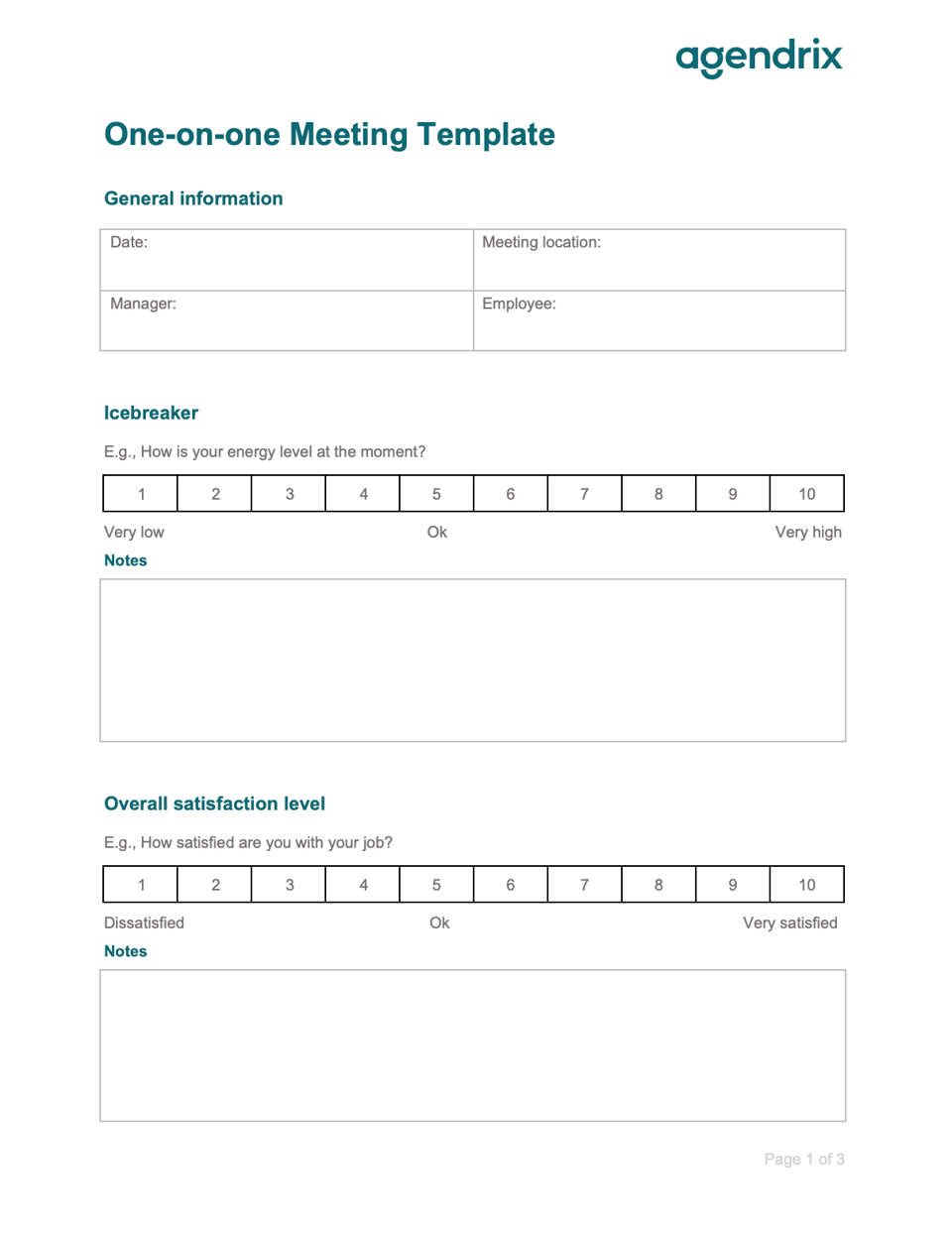
To which address should we send your resource?
What Is a One-on-One Meeting?
A one-on-one meeting (or 1:1 or 1-on-1) is a professional meeting between a manager and an employee. The meeting allows employees to discuss how their projects are coming along, talk about their career development goals and share feedback or questions. Both the manager and the employee must keep an open mind and actively participate in the discussion.
Why Hold a One-on-One Meeting?
One-on-one meetings offer managers an opportunity to check in on their team members, manage conflicts, discuss professional development and evaluate employee performance. A productive one-on-one will allow the manager to better understand employees’ experience at their company.
How to Write a One-on-One Meeting Report?
A report on the one-on-one meeting should be written by the manager and include notes on the various topics discussed during the meeting. Items might include conversations about the employee’s challenges or current stress levels, the degree to which they’ve reached performance goals, their moods, and any other relevant topics. The report should be prepared in advance and then filled out in real time during the one-on-one. The report is then added to the employee record and can provide structure for future 1:1 meetings.
What Topics Should Be Covered in a One-on-One Meeting?
Well-structured one-on-one meetings help guide the discussion between the manager and the employee, thereby leaving more time for more informal conversation.
Topics often discussed include:
- Current moods and feelings
- Well-being and workload
- Family and personal life
- Performance objectives
- Current projects and priorities
- Recent successes
- Challenges, issues or labor conflicts
- Employee’s career development plan
- Employee’s feedback on the management style
- Employee’s satisfaction
- Company’s mission and vision
- Days off and upcoming vacations
What Are the Benefits of One-on-One Meetings?
The many benefits of holding regular one-on-one meetings with employees include:
- Developing a trusting relationship between managers and their team members to help foster a healthy work environment
- Pinpointing and resolving conflicts or problems within the team
- Creating a pleasant work environment where employees can open up about their feelings
- Understanding employees’ personal situations and how they can affect performance
- Enhancing performance, productivity, job satisfaction and employee well-being





